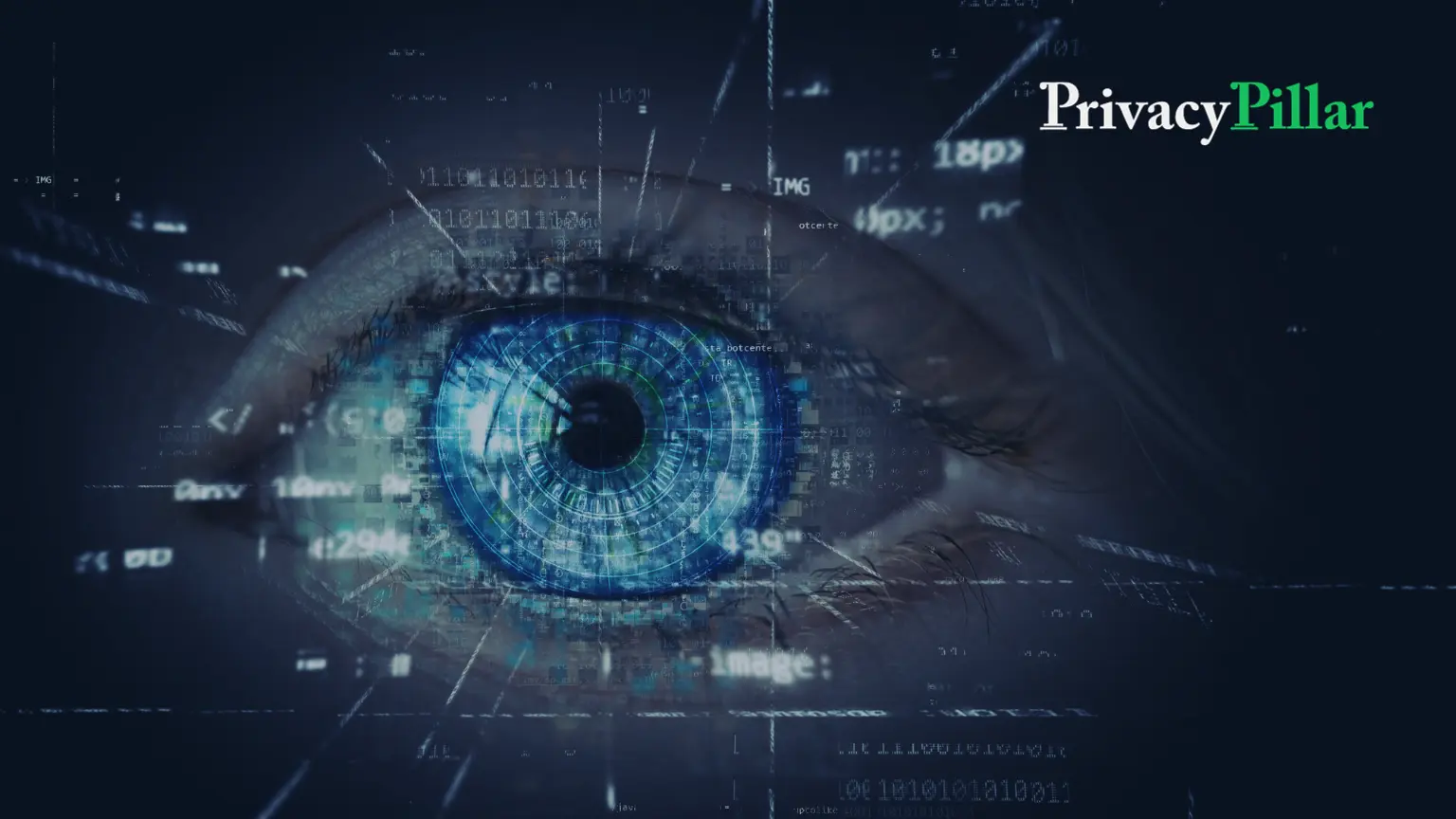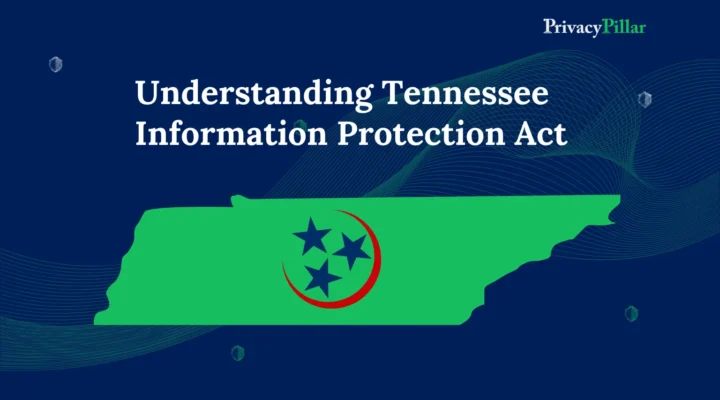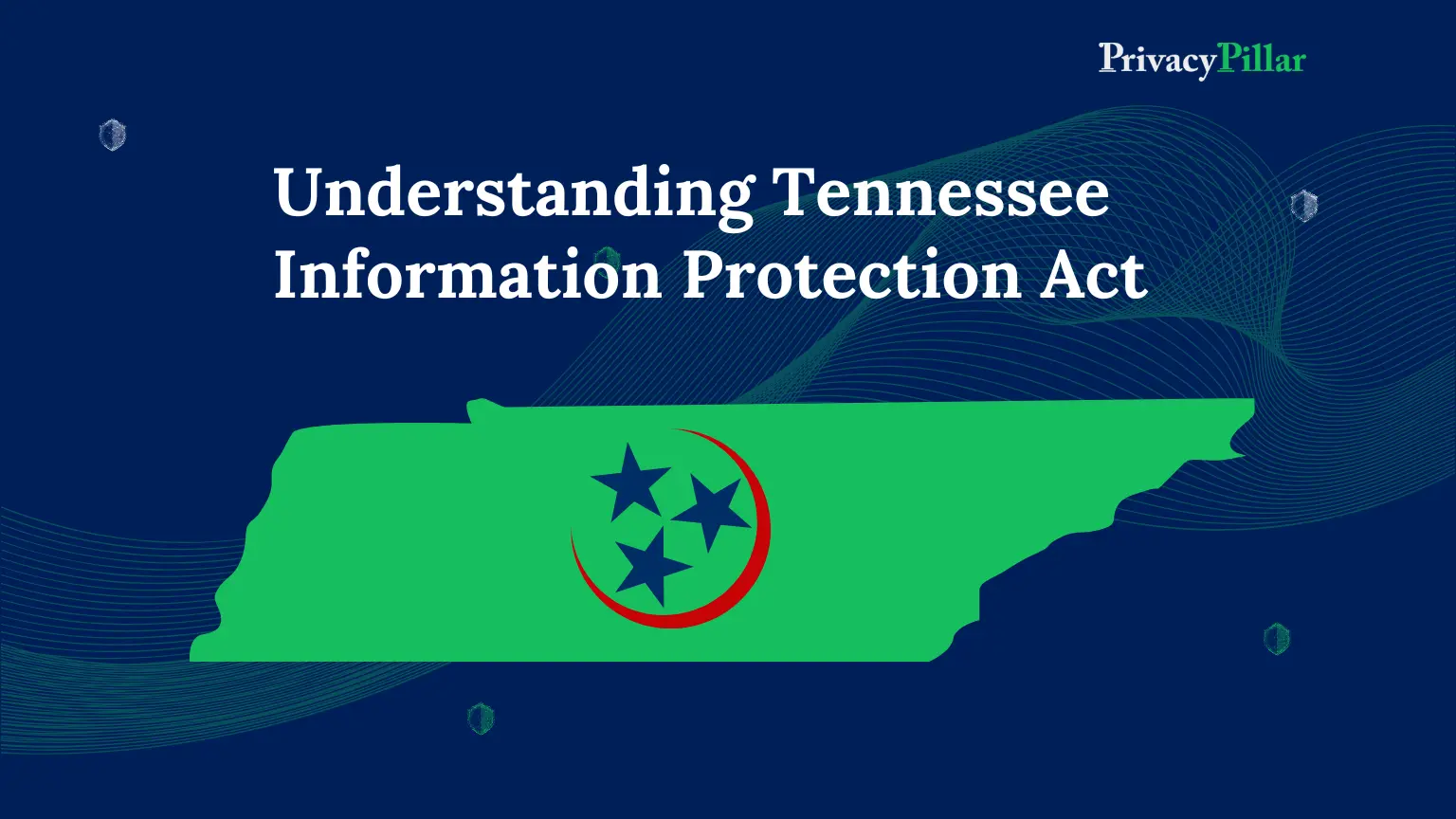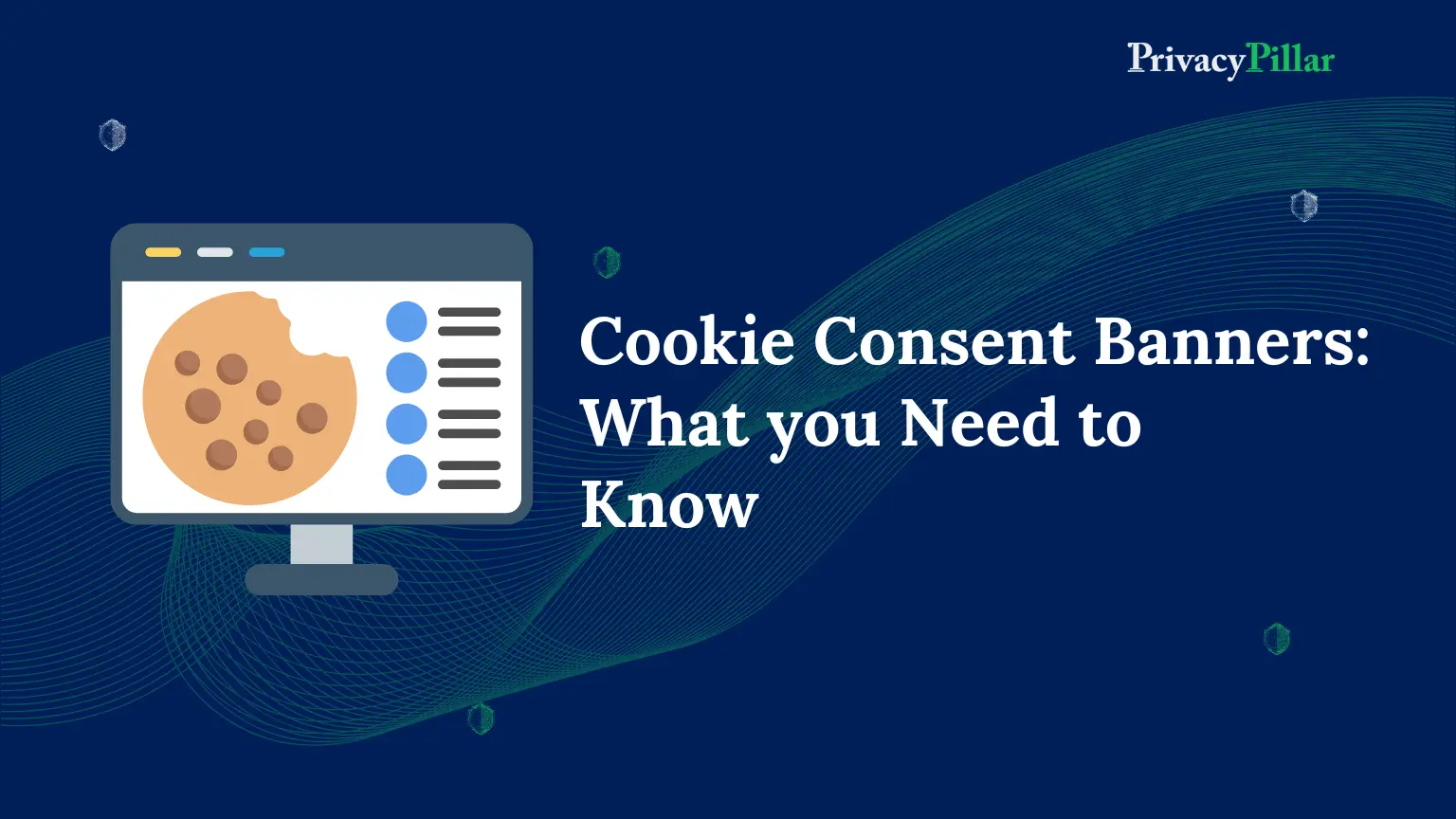
What is Data Privacy: Ultimate Guide to Compliance
Over time, as Internet usage has grown, so has the significance of data privacy.
To deliver personalized services, business through their digital platforms such as websites, apps, and social media; constantly requires collecting and keeping personal data about users.
However, certain platforms and applications could go beyond what consumers had anticipated regarding data gathering and utilization, giving them less privacy than they had realized.
Other platforms and applications might not be able to put enough protection in place for the data they gather, which might lead to a data breach that neglects user privacy.
Now comes the question. What is Data Privacy and why is it so important.
What is Data Privacy?
Data privacy, also called information privacy, pertains to an individual’s ability to manage the sharing of personal information.
This covers aspects such as the scope, timing, and method of sharing and determining who can access the data and how it is made public.
Examples of personal information include one’s name, address, phone number, and online or offline behaviors.
It is like how someone might wish to exclude specific individuals from a private chat, several internet users opt to regulate or restrict the collection of certain types of personal data.
The field of data protection encompasses three primary subcategories: data security, data privacy, and traditional data protection, which includes tasks like creating backup and restoration copies.
Focusing on ensuring the uninterrupted availability and integrity of critical business data, prioritizing the privacy of sensitive and personal information can be considered a fundamental aspect of top-tier data protection and security practices.
In simple words, Data privacy concerns how data should be collected, handled, maintained, and shared with any third parties and compliance with relevant privacy legislation (such as the General Data Protection Regulation GDPR or the California Consumer Privacy Act-CCPA).
Precisely, data privacy problems frequently focus on the following:
- Which data is shared with other parties, and how.
- How data is legitimately collected or stored.
- Regulations such as the CCPA/CPRA, CPA, GDPR, PIPEDA, HIPAA, GLBA, and other Global regulations
In response to the demands of a specific industry or category of the public, nearly all nations have adopted legislation regarding data privacy.
Definitions of Data Privacy
While there is widespread consensus on the significance of data privacy and its essential connection to data protection, defining “data privacy” is notably complex due to varying definitions presented by different countries laws.
Broadly speaking, data privacy can be defined as:
“Data privacy entails safeguarding and managing personal information gathered from individuals, ensuring its collection, processing, utilization, and sharing adhere to principles that uphold individuals’ rights, preserving their privacy, integrity, and security.”
Data privacy refers to the procedures to ensure that customer data is only used for the intended purpose.
Privacy is an important subject in a world where data volumes are constantly expanding, and privacy rights grant individuals the authority know what happens with their personal data.
Most people nowadays believe that data privacy is the most significant issue in consumer protection.
One element that contributes to the growing complexity in technology and the resulting types of data collected.
Data sovereignty
Data sovereignty relates to the principle that digital data is subject to the laws and regulations of the country where it is physically situated.
With the rise of cloud computing services and mounting data security concerns, various nations have introduced legal modifications to oversee data storage within their territories, particularly with regards to the data of their citizens.
Current discussions and issues related to data sovereignty revolve around governments’ efforts to prevent data being transferred/stored outside their country’s geographical boundaries.
Implementing this restriction and ensuring data remains within the host country can be challenging and often relies on the specifics outlined in the Service Level Agreement with the Cloud Service Provider.
Geographical Differences in Data Privacy
In various regions around the world, privacy has often been perceived as a component of personal freedom, encompassing the right to be exempt from intrusive actions by the state.
Within the European Union, privacy is universally recognized as an inherent and essential fundamental right.
Data protection, which deals with the technological foundation for keeping the data secure and accessible, is used in most geographic areas where privacy is a legal concept rather than a technical one.
Why is Data Privacy important?
Data stands as one of a company’s most crucial assets.
As the data economy grows, companies recognize immense worth in data collection, sharing, and utilization.
Giants like Google, Facebook, and Amazon have established vast empires by capitalizing on the data economy.
For these businesses to earn trust and accountability from customers and partners who prioritize privacy, transparency is essential.
This includes how companies seek consent, adhere to privacy policies, and handle the data they accumulate.
Numerous companies have faced the consequences of privacy mishaps through widely publicized incidents, highlighting the significance of privacy awareness.
Furthermore, it is essential to recognize that privacy is universally accepted as a fundamental human right in numerous legal jurisdictions.
Data protection laws have established protective measures to ensure this right is preserved.
Data privacy is vital because individuals must feel confident and secure while engaging online.
Users are more willing to engage and interact in digital sets when they have confidence that their data will be managed with respect.
Therefore, organizations adopt data protection practices to showcase their commitment to safeguarding customers’ and users’ personal data.
Building this trust helps organizations establish credibility and foster positive relationships with their user base.
The significance of data privacy can be analyzed from both an individual’s perspective and a business standpoint:
Individuals
Privacy laws worldwide are designed to empower individuals by granting them control over their data.
These regulations empower customers to oversee the processing and usage of their data.
This encompasses comprehending who accesses the data, the intended purpose of its usage, and the methods employed in its use.
Companies that gather personal data must abide by these rules, answer user questions, and lawfully maintain data.
Businesses
Companies cannot operate without processing personal data to some extent.
However, to remain compliant, businesses must handle personal data transparently and follow privacy regulations.
They must take responsibility for the personal data they process and adhere to privacy principles.
Failing to do so can result in severe consequences, including substantial regulatory fines, loss of customer trust, decreased investor appeal, and data breaches.
Nonetheless, privacy laws, such as GDPR, have pushed some companies to transform digitally, giving privacy-forward businesses a competitive advantage.
This advantage extends from meeting customer expectations to reaping benefits like improved data quality, enhanced customer experience, heightened investor appeal, and a stronger brand image.
According to a report by Forbes, 46% of organizations experienced harm to their reputation and brand value due to a privacy breach.
As the world witness’s new data protection regulations in various jurisdictions, the advantages of adhering to data privacy laws are becoming increasingly evident.
The increase in regulations serves as a reminder of the growing significance of data privacy compliance since it protects companies’ reputations from harm and helps them establish trust with customers and other business partners.
Embracing data privacy and best practices is now essential for companies looking to navigate the evolving landscape of data protection and maintain a positive brand image in the eyes of their stakeholders.
Consequences of Data Misuse/ Breach Misuse of personal data can result in various detrimental outcomes for both individuals and businesses. Here are key points to highlight:
1. Misuse by Criminals
When an individual or a company fails to maintain the privacy of personal data, it can create an opportunity for criminals to misuse that data for harassment, fraud, or identity theft practices. This causes considerable harm to the individual or company impacted.
2. Unwanted Marketing
Without user consent, entities might sell personal data to advertisers or third parties, leading to irrelevant marketing or advertising messages, which can be invasive and disruptive to users.
3. Restriction of Freedom
Excessive tracking and monitoring of individuals can limit their freedom of expression, especially in environments with repressive governments, as they may fear repercussions for their actions or opinions.
4. Harm to Reputation
For businesses, mishandling or misusing personal data can damage their reputation, eroding trust and credibility among customers and partners.
5. Legal Consequences
Disregarding data privacy regulations can leave businesses vulnerable to fines, penalties, and legal complications, which could result in financial losses and other unfavorable consequences.
Both individuals and businesses must prioritize data privacy to protect against these harmful outcomes and ensure a safer and more trustworthy digital environment.
Data Privacy Laws
As technological progress has advanced data collection and surveillance capabilities, governments worldwide have taken measures to pass laws governing the types of data permissible to collect from users, its acceptable usage, and the protocols for data storage and protection.
These regulations are essential in addressing privacy concerns and balancing technological innovation and individual rights.
New jurisdictions are passing their own data privacy laws as the digital world changes, highlighting the widespread acceptance of data protection as an essential component of modern society.
Compliance officers play a crucial role within organizations, as they are responsible for devising data privacy policies, necessitating a comprehensive understanding of these data privacy regulations.
Data privacy regulations cover various forms of data, with laws like:
- The E.U.’s (European Union) General Data Protection Regulation (GDPR) grants citizens increased authority over their data and company interactions.
- Compliance officers play a crucial role within organizations, as they are responsible for devising data privacy policies, necessitating a comprehensive understanding of these data privacy regulations.
- The California Consumer Privacy Act (CCPA) mandates organizations to inform consumers about the personal data they collect and empowers consumers with control over their personal information.
- This includes the right to request that organizations refrain from selling their data.
- Some such regulations include the U.K.’s Data Protection Act and Brazil’s General Law for the Protection of Personal Data, which share similarities with the GDPR.
- Several nations, such as Canada, Japan, Australia, and Singapore, have implemented various comprehensive data protection laws in multiple forms.
- The U.S. Health Insurance Portability and Accountability Act (HIPAA) oversees specific data types.
- Similarly, the Electronic Communications Privacy Act (ECPA) expands government restrictions on wiretaps to encompass electronic data transmissions.
- Another example is the Children’s Online Privacy Protection Act (COPPA), which empowers parents to control the information that websites can gather from their children.
Nevertheless, privacy advocates are concerned that individuals still lack sufficient control over their personal information, underscoring the need for further efforts to enhance data security.
In response to these concerns, governments worldwide may introduce further data privacy laws to address the evolving challenges and safeguard individuals’ privacy rights.
Data Privacy vs. Data Security
Many organizations mistakenly assume that safeguarding sensitive data from hackers automatically ensures compliance with data privacy regulations.
However, this assumption stands false.
A combination of Data Privacy and Data Security is essential to safeguard data and adhere to data protection laws.
While these terms may appear similar, their differences become more evident when closely examined.
Data Privacy
It concentrates on protecting individuals’ rights, managing the purpose of data collection and processing, respecting privacy preferences, and governing the personal data of individuals.
It includes all data collection, processing, sharing, storing, and deletion aspects by relevant regulations.
Data Security
On the other hand, Data Security encompasses a set of standards, safeguards, and measures organizations implement to prevent unauthorized access to digital data by third parties.
It safeguards against intentional or unintentional alteration, deletion, or disclosure of data, protecting it from malicious attacks and preventing its exploitation. (data breaches/cyber-attacks)
Data Security measures include Access control, Encryption, Network security, and other protective mechanisms.
Wondering which aspect holds greater significance for your organization?
Suppose your company implements comprehensive data security measures, utilizing all available means to protect data, but fails to collect that data on a valid lawful basis.
No matter how strong the data security mechanisms were, this situation would still violate the privacy of the data.
This illustrates that data security can be present without privacy, but the opposite is untrue.
Examples of Data Privacy Risks include:
To obtain a data privacy certification from reputable audit organizations like ISO, SOC II, or HIPAA compliance, an organization must demonstrate a serious commitment to data privacy.
Several significant cloud data privacy challenges that need to be addressed include:
1. Vulnerabilities in Web Applications: Software hosted in the cloud or on the web should be thoroughly vetted and secure to prevent potential breaches.
2. Insiders and Poorly Trained Employees: Training all team members about data privacy is essential to avoid accidental mishandling of sensitive information.
3. Lacking Breach Response: An incident response plan is crucial to promptly and effectively address data breaches or privacy incidents.
4. Insufficient Disposal of Personal Data: Adhering to data protection regulations necessitates retaining personal data only for the required period and ensuring proper disposal when it is no longer needed.
5. Absence of Clarity in Privacy Policies and Terms: Users, customers, and stakeholders should clearly understand privacy policies and terms of service without difficulty.
6. Collection of Unnecessary Data: Collecting data should always have a specific purpose with proper consent, and organizations should refrain from gathering more data than required for the intended use.
7. Personal Data Sharing: Informing users about any sharing of personally identifiable information is essential to maintain data privacy.
8. Incorrect or Outdated Personal Data: Individuals have the right to rectify outdated or inaccurate personal data under data privacy laws, necessitating proper procedures for such requests.
9. Session Expiration Problems: Session expiration in web applications should be managed carefully to prevent data exposure when users abandon their sessions.
10. Data Transfer Over Insecure Channels: Sensitive data should only be transmitted through secure channels and protocols to avoid unauthorized access.
11. Extra Credit: Dealing with the Unknown: Organizations must be prepared to handle unforeseen threats and compliance challenges in the dynamic data privacy landscape, necessitating robust data governance security and privacy programs.
What are Fair Information Practices?
Fair Information Practices (FIPs) are foundational privacy principles and data collection and usage guidelines.
They were first proposed by an advisory committee to the U.S. Department of Health, Education, and Welfare in 1973 and later adopted by the International Organization for Economic Cooperation and Development (OECD).
These principles protect individuals’ privacy and govern how personal data should be handled.
The Fair Information Practices include the following guidelines:
1. Limitation on Collection of Data: The amount of personal data should be limited, meaning only relevant data is collected and used.
2. Data Quality: When collected, personal information must be accurate, current, and of relevance to the intended use.
3. Specified Purposes: Personal data should be collected and used only for its original specified purpose.
4. Use Limitation: Data should not be used for purposes other than initially specified without obtaining additional consent from the individual.
5. Security Safeguards: Personal data protection should be ensured against unauthorized access, disclosure, or change.
6. Transparency: Businesses should be transparent about their data collecting and usage practices. Also, Individuals should be informed about the collection of their data.
7. Individual Participation: It entails specific entitlements for individuals, encompassing the right to be informed about parties accessing their personal information, the ability to demand access to their data, comprehension of reasons for denial of data requests, and the option to rectify or delete their data when deemed necessary.
8. Accountability: Companies that collect and use personal information should be held responsible for following these guidelines and should put systems in place to guarantee compliance.
By following these Fair Information Practices, organizations can demonstrate a responsible and ethical approach to handling personal data and safeguarding individuals’ privacy rights.
These principles serve as the foundation for many data protection laws and regulations worldwide.
Most Important Technologies for Data Privacy
1. Complete data privacy automated solutions: With current business complexities, its. With the increasing amount of personal information being shared online, it is important to have measures in place to protect that data.
From encryption to data backup, there are a variety of solutions available to help safeguard sensitive information and ensure privacy.
It is important for individuals and businesses alike to take proactive steps towards protecting their data.
2. Encryption: Encryption is an important technique that helps protect data privacy by converting data into a ciphertext that is not understandable by unauthorized parties.
Only the appropriate encryption key can decrypt and access the original data.
Encryption is widely used to secure data at rest (stored data), data in transit (data being transmitted between systems), and data in use (data being processed by applications).
3. Access Control and Data Loss Prevention (DLP): Access control restricts access to systems and data to only authorized individuals or entities.
With the use of this technology, it is made sure that only those with the proper authorizations may access critical data.
Data Loss Prevention (DLP) complements access control by monitoring and preventing unauthorized attempts to transmit sensitive data outside the network.
It helps prevent data leakage and ensures data remains within authorized boundaries.
4. Two-Factor Authentication (2FA): Two-Factor Authentication is a security mechanism that requires users to provide two different authentication factors to access their accounts or systems.
Typically, this involves combining something the user knows (like a password) with something the user possesses (like a mobile device or a hardware token).
2FA significantly enhances security by adding an extra layer of protection against unauthorized access, even if the password is compromised.
It’s critical to remember that while these technologies are essential for protecting data privacy, a complete data privacy and security strategy should also include strong organizational policies, user education, and legal compliance procedures.
Conclusion
We can conclude by saying that the importance of data privacy has grown alongside the expansion of internet use and digital platforms.
Businesses gathering personal data have raised privacy concerns, prompting the need for regulations.
Data privacy grants individuals’ control over their data, ensuring proper collection, storage, and sharing in line with privacy laws. It empowers individuals and builds business trust, preventing reputational harm and legal issues.
Amid evolving technology and privacy challenges, safeguarding data privacy against misuse upholds reputation and nurtures trust.
Adhering to best practices fosters an ethical data environment that respects rights and fosters trust between organizations and users.



